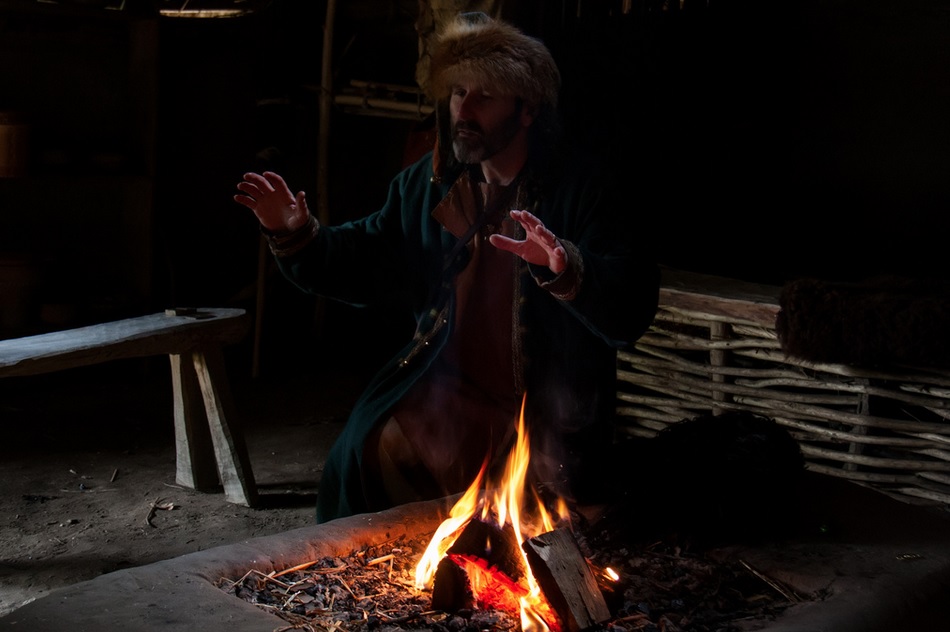I’m a storyteller.
I tell stories.
What are stories? We think we know. Stories are what we say to each other when something happens and we want to communicate what it is. A million years ago, when the first cave man came back from hunting and gathering dinosaurs and his wife asked, “What happened?” he told her. That was the first story, and we have been basically doing the same thing—telling stories about dinosaurs to our wives—ever since.
But stories are more than that. Stories are also what we tell ourselves—about who we are, and what we are, and who we think we should be, and what we think other people should think about who we are, and who does that other person think he is, anyway?
In fact, a school of philosophical thought has lately gained prominence holding that our sense of reality itself is the result of a series of stories the mind tells itself. It does this every night in that peculiar phase of quasi-consciousness called “hypnogogic sleep,” right after milk and cookies and, of course, brushing its teeth.
This is where narrative comes in.
When I perceive something, or I have an experience out in the world, as sometimes happens, I tell myself a narrative about it. E.g., “This is what happened. You went to that stupid Mexican place and the little pleated paper cup of sour cream was actually Crisco and the idiot waiter didn’t believe it.” This narrative has all the basic elements of a story: a protagonist (“You”), a setting (“that stupid Mexican place”), an antagonist (“the idiot waiter”), and a reference to sour cream. Perhaps we wonder, “If I’m talking to myself—if I’m, as it were, telling this story about myself, to myself—why do I address myself as ‘You’ and not ‘I’?” No one knows the answer to this, and it’s possible they never will.
Still, that is the story we tell ourselves, and we are sticking to it. If we’re paying attention, we think, “Oh, I ‘see,’” and in just that way, we create our inner world. (If we’re not paying attention, we say to ourselves, “Wait—what?” And that becomes the reality of our inner world itself.) Animals, interestingly, cannot do this—or, if they can, they for some reason decline to so inform us.
In this way, the story and the teller are one and the same, to the extent that they are not different. Recently, an entire field of theory and praxis has emerged to tell stories, critique their content via the intermediation of notes from busy executives, syndicate the fuck out of them to other markets, and merchandise ludic instrumentalities (“toys”) based on their characters. It is called “show biz.”
It is tempting to believe that every story is unique. Certainly the ones we ourselves hear seem unique. But are they? Or, rather, is it the case that we’re so drunk we’ve forgotten that we’ve heard them, and even told them, before—in some cases, just last week? It doesn’t matter. It is said that “every person has at least one book in them.” What is not said, but which merits saying, is that in most cases, it’s the same book. It’s My Friend Flicka. Most scientists fail to acknowledge this.
Note that, when, in my capacity of being a storyteller, I tell stories, I connect my listeners with a tradition thousands of years old, and yet also to a craft that is modern as tomorrow.
Mankind is, as you may know, a social animal. We are a species that thrives on—that requires—socials, as well as cotillions, mixers, sock hops, get-togethers, hangouts, senior proms, dance parties, and shindigs. Go to any one of these so-called “functions of sanctioned co-mingling” and you’ll see several things. For one, you’ll see guys and gals getting down, staying funky, and just having a good time. But you’ll also see people telling stories—to each other, to themselves, and to their date. When a young man tells a young woman, “Let’s go to my place, my parents are out of town but they said it’s cool,” it is as though he were his own ancestors, gathered around a tribal fire and listening in rapt awe as the headman or shaman or he-man recounts heroic tales of legendary triumphs.
And that is why I became a storyteller—to be a part of this beautiful, extensive history of telling stories and being listened to. Won’t you join me, not in telling, but in listening to?
Hans Splinter
http://tinyurl.com/ndp3cbj
